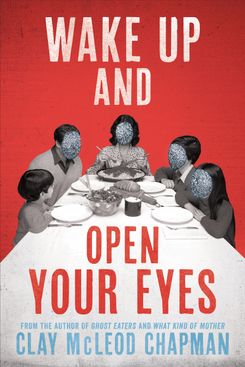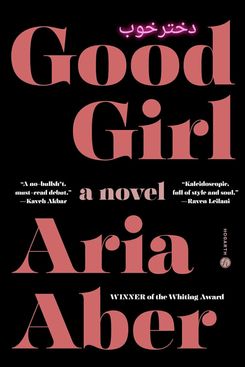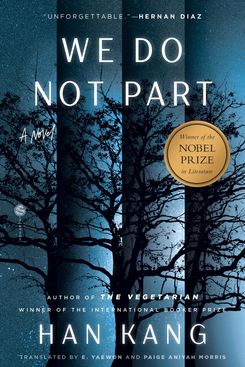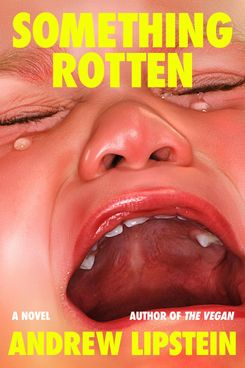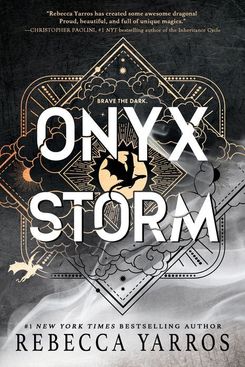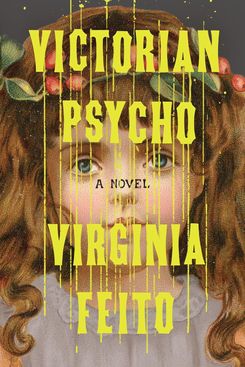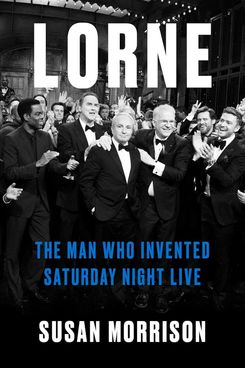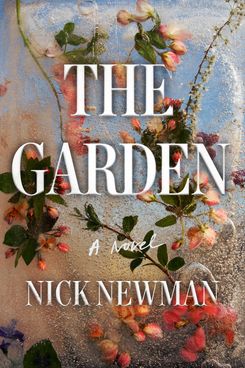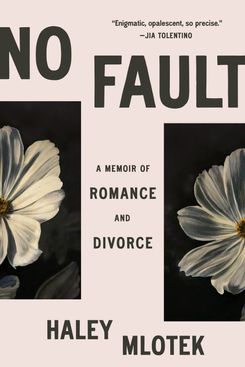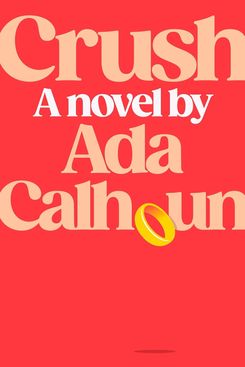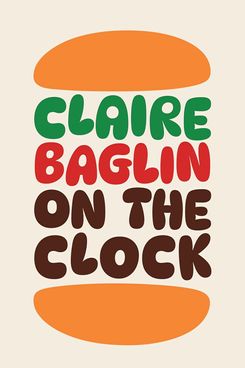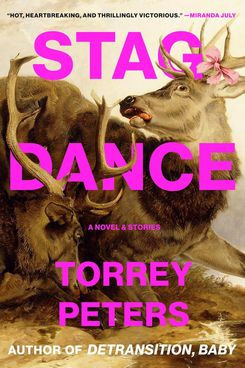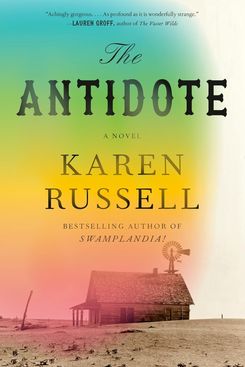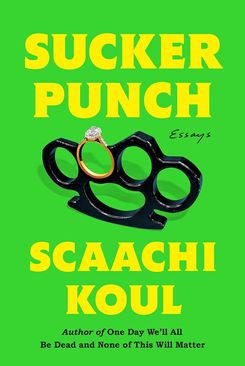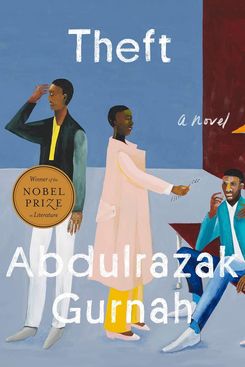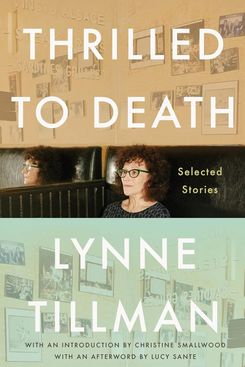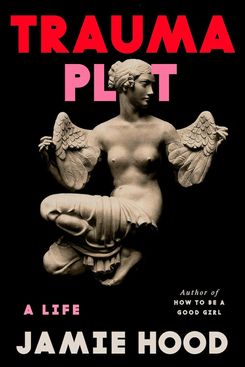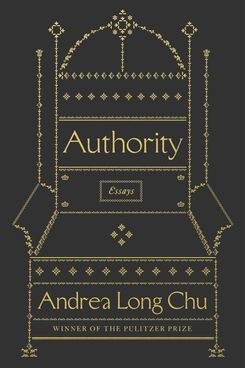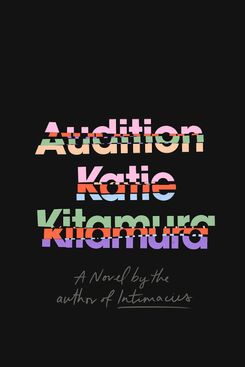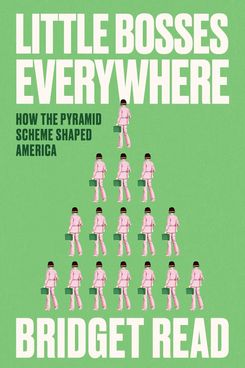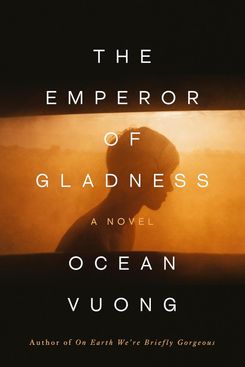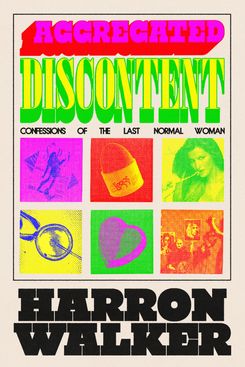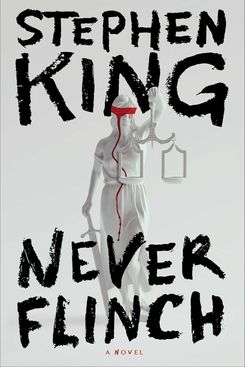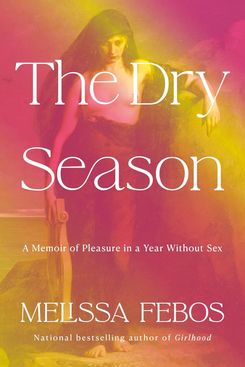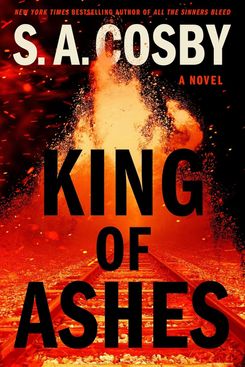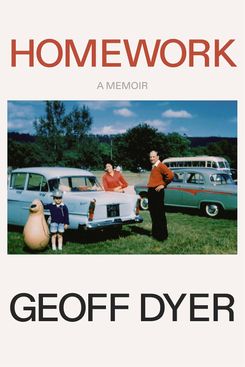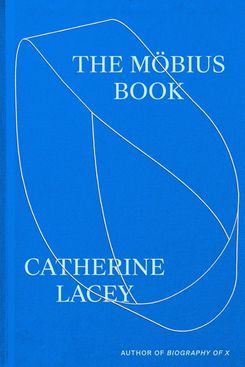
A new year always brings some uncertainty, and that seems particularly true at the start of 2025. As America grapples with a new (yet familiar) political era, and the larger world faces challenges with few easy solutions, what better way to settle into our precarious existence than in the company of our sharpest writers? To help make sense of our current culture, celebrated critics are releasing essay collections; entertainment luminaries are the subjects of biographies and memoirs; and one writer blends personal experience and history to examine the institution of marriage. Meanwhile, multiple Nobel winners and visionary authors are returning with novels that take us to all corners of society, real and fantastical, revealing truths about the human experience through fiction.
January
Chapman’s nightmare road-trip Wake Up and Open Your Eyes is driven by a kicker of a timely concept: a national epidemic of mass demonic possession, caused by prolonged exposure to polarizing media. As Noah and his nephew race back to the (relative) safety of Brooklyn, they must navigate a horde-filled America, poisoned by hate and screen time. Chapman has plenty to say about radicalization within both nations and families, and the satire is as savage as the violence. It’s the most ambitious novel yet from a writer quietly redefining the emotional contours of contemporary horror. —Neil McRobert
Aber’s first book, the poetry collection Hard Damage, earned her literary acclaim and the 2020 Whiting Award. Her debut novel, Good Girl, is bound to bring her the sort of broad public attention fans of her work have long known she deserved. The novel follows 19-year-old Nila, a German-born daughter of Afghan parents who spends her nights roaming through the underground club and literary scenes in Berlin. Nila is an endearing and sharp narrator, caught between the life her parents want for her and the artistic freedom she desires. When she meets an once-lauded American novelist, Marlowe, she finds herself drawn toward the conditional freedom he offers. Nila must reckon with her impulse to pursue an artistic life shaped by another artist’s control and insecurity. —Isle McElroy
The most recent Nobel laureate in literature — best known for The Vegetarian, her slim, feverish novel about misogyny and control — returns with a new book. Published in 2021 in South Korea, We Do Not Part now has an English translation by e. yaewon and Paige Aniyah Morris. Tasked by her former co-worker to rescue a pet bird from Korea’s Jeju Island during a whiteout snowstorm, a solitary woman named Kyungha finds herself face-to-face with a violent, nearly erased chapter in Korea’s political history. —Emma Alpern
After a disastrously embarrassing incident at work, former NPR host Reuben is out of a job. So he’s more than happy to leave New York for a long vacation in Copenhagen, where his wife, Cecilie, grew up. There, they start hanging out with Cecilie’s old friends — and her terminally ill ex-boyfriend — a collection of people whose prickly intelligence is both fascinating and unnerving to him. Lipstein’s latest is a simmering psychological novel about modern masculinity that tiptoes into thriller territory. —E.A.
If inntinnsic, venin, and ward activation mean anything to you, lock in vacation time for the end of January now: The third installment in Rebecca Yarros’s Empyrean novels returns to Basgiath War College with a steamy tail guaranteed to stoke the flames of passion and fury between its students, dragon riders learning to wield the magic derived from their beastly bonds to protect the kingdom of Navarre. This time around, Violet Sorrengail, the first rider to ever bond with two dragons simultaneously, will have to work extra hard to keep her hands off her beloved Xaden Riorson if she’s going to protect him and everyone they love from an enemy threatening to extinguish them. —Julie Kosin
.
Also coming in January
➼Rosarita, by Anita Desai (January 7)
➼ Death of the Author, by Nnedi Okorafor (January 14)
➼ In Gad We Trust: A Tell Some, by Josh Gad (January 14)
➼ Save Me, Stranger, by Erika Krouse (January 21)
➼ Black in Blues, by Imani Perry (January 28)
February
Virginia Feito’s first novel, Mrs. March, illustrated the inner life of a woman folded in on herself with anxiety and burdened by the assumed expectations of others. It was pure psychodrama, a picture of the kind of strangled and cloistered existence that seems to belong to a time before suffrage. So naturally, Feito’s next book is set in the 19th century. Victorian Psycho is a riff on horror-adjacent “governess in a big house” gothic stories like Jane Eyre and The Turn of the Screw. But with a twist: What if the nanny is a freaking psychopath? The novel is already getting the feature-film treatment, starring Margaret Qualley and Thomasin McKenzie. So read the book now before the paperback gets one of those horrid movie-poster covers. —Bethy Squires
To understand American comedy, and to a lesser extent Canadian comedy, as it exists today, you have to understand Lorne Michaels. It is truly twisted how much the comedy landscape has been shaped by the tastes, whims, work habits, and general vibe of The Saturday Night Live creator and producer. Why is Cecily Strong in every cell-phone ad? Why is Kenan Thompson the longest-running performer in SNL history and Kel Mitchell mostly a nostalgia figure? Why do we still have to pretend Mick Jagger is funny? Ask Lorne. This book will give insight into a famously enigmatic man, and thus the empire he hath wrought. —B.S.
Nick Newman’s first novel for adults was the focus of a competitive bidding war, with heavyweight comparisons to Shirley Jackson, Cormac McCarthy, and Emily St John Mandel. Two elderly sisters live a solitary existence behind a walled garden, somewhere in time and maybe at the end of the world. Their lonely paradise is spoiled when a young boy finds his way into the grounds, awakening long-suppressed emotions and suspicions that change how they see their world. Part fable, part literary thriller, wholly unmoored from genre convention, The Garden may be the elusive inheritor to the weirdness of Susanna Clarke’s Piranesi. —N.M.
After more than a decade together, Haley Mlotek and her partner decided to get married — just a year later, they divorced. The sudden dissolution of her relationship spurs Mlotek to research marriage as a cultural and historic institution. Marriage might be archaic and sexist, but Mlotek takes care to show how it is also a deeply intimate union, one that is difficult to study without looking inward. This is an insightful, tender exploration of the desires that draws people together — and the rifts that push them apart. —I.M.
Books about perimenopausal women seeking romance outside their marriages continue to be a micro-trend in the publishing world. 2023 delivered Molly Roden Winter’s buzzy memoir More: A Memoir of Open Marriage and Miranda July’s All Fours, a novel about an artist’s unexpected sexual awakening. Now there’s Crush, which reads almost like a cross between the two. The first novel from Ada Calhoun — her nonfiction books include Also a Poet and Why We Can’t Sleep — is written from the perspective of a married Brooklyn writer who decides to explore polyamory only to fall hard for David, a former crush who quickly becomes her current one. The potential lovers communicate through books and literary references. “One day David and I began — because this was the kind of thing that happened — sending each other emails in the style of a thousand-year-old Japanese court diary, The Pillow Book of Sei Shōnagon,” she writes. I mean: Who among us hasn’t done this? But Calhoun has a gift for explaining complicated emotions with concise, carefully chosen prose. If you’re a woman of a certain age whose hot flashes have reignited other fires within, you will read and feel recognized. —Jen Chaney
.
Also coming in February
➼ Three Days in June, Anne Tyler (February 11)
➼ Death Takes Me, Cristina Rivera Garza (February 25)
➼ One Day, Everyone Will Have Always Been Against This, Omar El Akkad (February 25)
March
This debut novel, translated from the original French by Jordan Stump, playfully explores social inequity through the lens of one family’s relationship to work. The narrator, a 20-year-old in search of a summer gig, is hired for a fast-food position after a particularly grueling interview. She alternates recounting the minutiae of the job — “frozen rectangle” fires, boiling oil, repetition — and memories featuring her electrician father, a graceless and unfortunate country man whom she both loves and is ashamed of. On the Clock is a visceral depiction of manual labor, alienation, and family in rural France. —Jasmine Vojdani
The stifling constraints and liberating possibilities of gender are simultaneously on display in this inspired collection (comprising the titular novel and three novellas) from the Detransition, Baby author. Insecurity, jealousy, and sexual desire permeate these narratives, which span a boarding-school romance, a psychological horror involving a young crossdresser seduced by the opportunity to live out an internet fantasy, and the origins of an apocalyptic pandemic that strips humans of their natural ability to create hormones. In Peters’s work, the process of self-discovery and transition is messy, radical, and urgent. —Tolly Wright
In Russell’s first novel since 2011’s Swamplandia, the MacArthur Grant recipient trades the pervasive humidity of a failing Florida theme park for the unbearable dryness of rural Nebraska during the Dust Bowl. A deadly dust storm hits a small town, destroying most of the crops on the struggling farms and mysteriously robbing the Prairie Witch, known as The Antidote, of the townsfolks’ memories she kept within her body. As the locals leave in droves for greener pastures, they seek the pasts they deposited with The Antidote, but she has nothing to return to her customers — until a recently orphaned teenager offers to help her create dazzling fictions to replace what was lost. As in the best of her short stories, Russell creates a rich, grounded world that uses the supernatural as a means to explore the depths of her characters’ emotions — loss, loneliness, longing, and even hope — and reach a transcendent, lyrical honesty. —T.W.
This book is about figuring out what to do when your life is upended by circumstances out of your control, watching your entire world of relationships and connections explode, and how to not die of hate and vitriol in the crater you’re left in. Sound relatable? Life throws you curveballs. Sometimes it feels like life is nothing but curveballs. Reading how Scaachi Koul, one of our foremost Zeitgeist dissectors, survives the setbacks will be a much-needed palliative for 2025. —B.S.
Set over the course of many years, Theft is about a series of reversals — of class, status, and intimacy — in modern-day Tanzania. Pushed away by his uninterested mother and her new husband, university student Karim returns to their home with a tentative newfound confidence; there, he meets Badar, a servant who’s not much younger than he is. Eventually, they each carve out a new life in cosmopolitan Zanzibar. This is Gurnah’s 11th novel and his first since he won the Nobel Prize in 2021. —E.A.
Author and art critic Tillman is an icon for a certain kind of reader (and writer). She writes fiction that’s formally innovative but unpretentious, inherently political, and unmistakably of our time. Thrilled to Death collects a career-spanning selection of her short stories starting from the early ’90s, with an afterword by Lucy Sante. —E.A.
With Trauma Plot, the critic and writer Jamie Hood reclaims the terminology from Parul Sehgal’s viral critique of trauma writing in order to “wrestle with rape’s dis-ordering, how it turned my cells against themselves.” Blending memoir, essay, and what sometimes reads as modernist prose, Hood explores the notion that we make survivors atone for the violence committed against them years after an assault. Hood examines three times she was raped, each in a different mode and point of view, crafting an innovative, rigorous, genre-bending, and ultimately life-affirming account of what it takes to survive. —J.V.
.
Also coming in March
➼ The Dream Hotel, by Laila Lalami (March 4)
➼ Optional Practical Training, Shubha Sunder (March 4)
➼ Luminous, by Silvia Park (March 11)
➼ O Sinners!, by Nicole Cuffy (March 18)
➼ Hot Air, Marcy Dermansky (March 18)
➼ Hunchback, Saou Ichikawa (March 18)
➼ Sister Europe, Nell Zink (March 25)
April
This collection of work by Pulitzer-winning critic Andrea Long Chu, much of it originally published in New York Magazine, contains some of her stirringly precise assessments of novelists like Zadie Smith and Hanya Yanagihara, along with essays about video games, theater, and Tyler Sheridan’s Yellowstone. It’s bookended by two new chapters looking at the dilemma of contemporary criticism — and the discipline’s ongoing state of crisis. —E.A.
Kitamura’s novels are probing, elliptical works often narrated by unnamed female characters trying to make sense of their lives. Her latest continues in that vein. An actress living in New York City, married to a writer, is working on a new play. She meets a young man named Xavier and the contours of their relationship change over the course of Kitamura’s most experimental novel yet. —Tomi Obaro
.
Also coming in April
➼ A/S/L, Jeanne Thornton (April 1)
➼ Open, Heaven, by Seán Hewitt (April 15)
➼ Medicine River, Mary Annette Pember (April 22)
May
In this first book by New York writer Bridget Read, the appearance of a pink Cadillac hits like a jump scare. Those cars, the signature vehicle of Mary Kay, are one of the many enticements that multilevel-marketing companies dangle to get people involved in their programs — which you probably already know are often accused of being pyramid schemes. Touting the possibility to be your own boss and make big bucks by shilling products and recruiting other sellers, MLMs like Mary Kay, Amway, and Herbalife often end up leaving participants broker than when they started. You might be wondering: How is any of this legal? Let Read answer that, plus a million other questions about this crazy industry that you didn’t even know to ask, in this deeply reported thrill ride–slash–horror story. This book is fascinating. And scary as hell. —Madeline Leung Coleman
Six years after his critically acclaimed debut novel On Earth We’re Briefly Gorgeous, the patron saint of Big Feelings is back with this sophomore effort about a suicidal 19-year-old Vietnamese man who finds a sort of chosen family, first by looking after a widow with dementia and then by working at a fast-casual restaurant in rural Connecticut. —T.O.
I came to know Harron Walker first from Twitter and the big big thoughts she could convey with that tiny medium. Her writing has been seen in places like GQ, Interview, and New York’s own the Cut. Aggregated Discontent examines pinkwashing, girlbossing, and other Frankenstein-ass portmanteaus designed to contend with our modern era. Perhaps most crucially for 2025, the book looks at employment, health insurance, and the ways we erase ourselves in order to stay employed and thus have affordable-ish health care. A Harron Walker take is always coming from a better angle, somewhere unexpected yet inevitable when viewed against the whole of culture. In a time when everyone else is zigging, Walker zags. —B.S.
Stephen King continues his late-career turn toward the detective thriller with another outing for Holly Gibney. Unlike 2023’s Holly, however, Never Flinch features more of the ensemble-cast storytelling that King does so well. While a detective tackles a vengeful serial killer’s promise to “kill thirteen innocents and one guilty,” Holly defends a women’s-rights activist from an obsessive stalker. In recent Holly books, King has been at his most outspoken about the political evils in contemporary America. It will be fascinating to see him return to the battleground of reproductive rights for the first time since 1994’s Insomnia. —N.M.
June
It might come as a surprise that Melissa Febos, an essayist celebrated for writing about sex and relationships, would turn her attention to celibacy. But The Dry Season is anything but a refutation of her earlier work. Rather, the book reveals Febos at her sharpest as she chronicles the year she spent celibate following the dissolution of the tumultuous affair at the center of her 2017 memoir Abandon Me. As much as it’s a book about celibacy, it is also a book about recovery and attention. Who does a person become when they cede their life to infatuation? And how does one return to the things they most love after losing a lover? —I.M.
S.A. Cosby has been on a meteoric rise since 2021’s Blacktop Wasteland. His vision of Southern America, blasted by crime, poverty and inequality, has put him on Barack Obama’s annual reading list and at the pinnacle of contemporary Southern noir. King of Ashes is a step further toward the epic, pitting a troubled family on the rim of the criminal world into conflict with the real bad men to whom they owe a debt. Cosby’s honest, brutal prose is the perfect vehicle for an underdog story about last resorts and final stands. –N.M.
“How readily children accept the world they are born into,” the novelist and essayist Dyer writes in his new memoir, Homework. That can be a sinister thing; for him, it was more or less a gift. Raised as an only child by a sheet-metal worker and a mother who worked in his school’s cafeteria, he grew up in a small house during a quiet turning point in England: after World War II, but with its scars still visible in the landscape around them. Dyer writes about this age of tentative postwar plenty, and the education that eventually shuttled him into a world that was far different than what his parents knew, in tender detail. —E.A.
After Autobiography of X, a wry novelistic experiment in biography and historical record, Catherine Lacey continues to probe and puncture the membrane between what is real and what is imagined. Named after the twisty, single-sided mathematical object, The Möbius Book, neither a straightforward novel nor memoir, presents readers with two distinct narratives, each beginning on either cover. One is an intimate chronicle of the aftermath of the author’s sudden breakup with a man she refers to as The Reason, the other a story in which friends Edie and Marie process their relationships while ignoring what appears to be blood leaking from a neighbor’s apartment. Recurring elements and themes in both include friendship, memory, broken teacups, broken hearts, and faith. This is a curious and entirely unique work. —J.V.
.
Also coming in June
➼ Atmosphere, By Taylor Jenkins Reid (June 3)
➼ Motherland, by Julia Ioffe (June 17)
Later in 2025
After the brilliant, cerebral chills of The House on Needless Street and Looking Glass Sound, Catriona Ward’s Nowhere Burning promises a more candidly monstrous thriller. When Riley and her young brother run away to the ruins of a disgraced movie star’s house, they find a home with the feral “Nowhere Kids,” but also face the greater terror that still lurks in the grounds. A retelling of Peter Pan set in a lightly veiled version of the Neverland Ranch: Yes, please. Especially from Ward! —N.M.
Nearly a decade since his last novel (2016’s The Fireman), Joe Hill returns to big, bombastic storytelling with this blend of horror, fantasy, and coming-of-age drama. When a gang of young outsiders are forced to steal rare books, they use one particular grimoire to summon the dragon-demon King Sorrow to kill their tormentors. Of course, neither dragons nor demons can be trusted, and the pact traps them in a decades-long, globe-spanning ritual of sacrifice and death. It’s as high-concept as anything Hill has yet written, and hopefully a showcase for his ability to ground the fantastic in everyday soil. —N.M.
Memoirs don’t often end on cliffhangers, but memoirs also aren’t often written by Cher. The mononym diva’s first, released last fall, concluded with her friend Francis Ford Coppola encouraging her to pursue a movie career around 1980. Of course, we know what happens next — Cher went on to win an Oscar for Moonstruck — but don’t you want to hear the woman herself tell it? Part two of her memoir also promises to cover her ’80s rock era and “Believe” in the ’90s, along with ex-husband Sonny Bono’s death and her son Chaz’s transition. —Justin Curto
.
Also coming in 2025
➼ I Want to Burn This Place Down, By Maris Kreizman (July 1)
➼ Trying, by Chloe Caldwell (August 5)
➼ The Hounding, Xenobe Purvis (August 8)
➼ Whites, by Mark Doten (August 19)
➼ Katabasis, R.F. Kuang (August 25)
➼ Happiness and Love, by Zoe Dubno (September 2)


